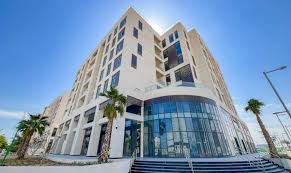Operating a retail shop in West Bay, Doha—one of Qatar’s most prestigious districts—can be a lucrative business opportunity. However, the process of setting up a shop in Qatar requires adhering to specific legal requirements, obtaining business licenses, and meeting regulatory standards, all aimed at maintaining a high-quality, well-regulated business environment. Here’s an in-depth look at the permits and procedures needed to open and operate a shop for sale in West Bay, covering topics like business registration, commercial licensing, health and safety compliance, and specialized permits.
1. Commercial Registration (CR)
The first step in establishing any business in Qatar, including purchasing luxury shops in Westbay, is obtaining a Commercial Registration (CR) from the Ministry of Commerce and Industry (MOCI). This document officially registers the business entity with the government and is a prerequisite for all other permits and licenses.
Requirements: To obtain a CR, an applicant must have a Qatari partner who holds at least 51% ownership in the business, as required by Qatari law,
Process: Registering a company typically involves submitting documents such as the business’s Articles of Association, proof of identity, lease agreements for business premises, and an outline of the business activities.
Duration: A CR is valid for one year and must be renewed annually.
The CR serves as a foundational permit, allowing the business to register under a recognized structure (e.g., Limited Liability Company) and proceed with other required permits.
2. Municipal License (Trade License)
The Municipal License, often referred to as a Trade License, is another crucial requirement. This license certifies that the retail shop’s location is suitable for its intended purpose, and it is issued by the Ministry of Municipality and Environment (MME).
Requirements: To secure a Municipal License, the shop premises must pass an inspection by local authorities, who check for compliance with zoning laws and confirm that the location is designated for commercial use. Documentation for this license typically includes the CR, lease agreement, building completion certificate, and a layout plan of the shop.
Process: After applying, an inspection is scheduled, and upon passing, the license is granted.
Renewal: Like the CR, the Trade License must be renewed annually to remain valid.
3. Signage Permit
To install any business signage, advertising, or branding outside the shop, a Signage Permit must be obtained from the Ministry of Municipality and Environment (MME). Signage in West Bay is regulated to maintain the district’s aesthetic standards, so this step is essential.
Requirements: The permit application usually requires the shop’s CR, Trade License, and design specifications for the signage, such as dimensions, colors, and materials.
Approval Process: The MME evaluates the application to ensure that the signage aligns with aesthetic and regulatory standards. It must also adhere to language guidelines, typically requiring signage in both Arabic and English.
Securing this permit allows businesses to create brand visibility while adhering to the aesthetic standards of the West Bay district.
4. Health and Safety Permits
Retail shops in West Bay must also comply with health and safety regulations. These requirements are enforced by Qatar’s Ministry of Public Health (MOPH) and other relevant agencies, ensuring that the shop’s environment is safe for both employees and customers.
Fire Safety Compliance: The premises must have fire safety equipment and emergency exits as per Qatar Civil Defense Department (QCDD) standards. Shops are inspected by the QCDD to verify fire safety compliance before granting an operating permit.
Hygiene Permits: If the shop involves the sale of food, beverages, or other perishable items, additional hygiene permits and inspections are required from the MOPH. Shops selling food must comply with stringent cleanliness and handling standards.
Employee Safety: Shops with employees must follow safety measures like providing protective gear, if necessary, and displaying safety instructions in Arabic and English.
Obtaining these permits demonstrates the shop’s commitment to maintaining a safe, clean environment, an essential factor in operating in an upscale area like West Bay.
5. Tax Card
Though Qatar has no value-added tax (VAT) for small businesses, obtaining a Tax Card from the General Tax Authority (GTA) is mandatory. This registration certifies the business with the tax authority and is required for certain administrative processes.
Process: Once the CR is obtained, the Tax Card can be applied for at the GTA. Documentation includes the CR, Trade License, and company details.
6. Qatar Chamber of Commerce and Industry (QCCI) Membership
Membership in the Qatar Chamber of Commerce and Industry (QCCI) is required for all businesses in Qatar. This membership supports local commerce and allows the business to connect with other local industries, enhancing networking and growth opportunities.
Application: Businesses must submit their CR, and identification documents of the owner(s), and pay a membership fee.
7. Special Permits Based on Business Type
Certain shops may require additional specialized permits depending on the nature of their operations. Below are some examples:
Food and Beverage: For shops involved in the sale of food, a Food License from the MOPH is mandatory, ensuring compliance with food safety regulations. This includes regular inspections and adherence to health standards.
Pharmacies and Health Products: For shops selling pharmaceuticals or medical products, permits from the Qatar Council for Healthcare Practitioners (QCHP) and the MOPH are needed.
Jewelry and Precious Metals: Shops dealing in jewelry or precious metals must obtain specific licensing from the MOCI, which includes additional security regulations and compliance with precious metal trading laws.
Conclusion
Opening a shop for sale in West Bay involves navigating a structured regulatory process to ensure compliance with Qatar’s business and safety standards. By securing the essential permits—Commercial Registration, Municipal License, Signage Permit, and specialized licenses as needed—business owners can operate legally and efficiently in one of Doha’s prime locations. While the process may be rigorous, it reinforces a safe, high-standard business environment that benefits shop owners, employees, and customers alike.

